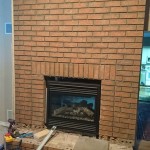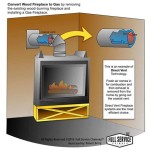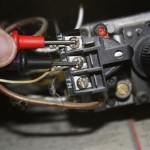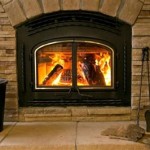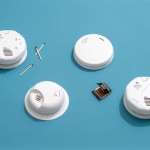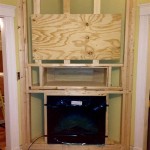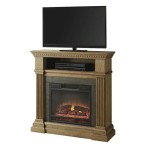Bionaire Fireplace Heater Recall: What You Need to Know
A significant recall affecting Bionaire fireplace heaters has been initiated due to potential safety hazards, specifically the risk of overheating and fire. This article provides a comprehensive overview of the recall, including the affected models, the reasons for the recall, steps consumers should take, and resources available to obtain more information. The safety of consumers is paramount, and understanding the details of this recall is crucial for preventing potential harm.
The recall focuses on certain models of Bionaire electric fireplace heaters manufactured and sold over a specific period. The issue stems from a component within the heater that, under certain conditions, can overheat. This overheating poses a significant fire hazard, potentially leading to property damage and, more importantly, putting individuals at risk of injury. The recalling entity, typically the manufacturer or a government regulatory body, has deemed the risk substantial enough to warrant a complete recall of the identified units.
Consumers who own a Bionaire fireplace heater should immediately check whether their specific model is affected by the recall. Continuing to use a recalled heater could lead to a dangerous situation. The purpose of this article is to inform the public about the specifics of the recall, provide clear guidance on how to identify affected models, and outline the necessary steps to take to ensure their safety and the safety of their property.
Identifying Affected Bionaire Fireplace Heater Models
The first and most crucial step in addressing this recall is determining whether your Bionaire fireplace heater is among the affected models. Typically, recall announcements provide a detailed list of model numbers, manufacturing dates, and other identifying information. This information is usually found on a label located on the back or bottom of the heater. Consumers should carefully examine their heater to locate this label.
The recall announcement will specify precisely which model numbers are subject to the recall. Compare the model number on your heater's label directly to the list provided in the official recall notice. Pay close attention to detail, as even a slight difference in the model number could mean that your heater is not affected. In addition to the model number, the manufacturing date code may also be relevant. The recall notice will specify the range of manufacturing dates that apply to the affected units. This date code is also typically found on the same label as the model number.
If the model number and manufacturing date code of your Bionaire fireplace heater match those listed in the recall notice, you should immediately discontinue using the heater. Unplug it from the power outlet and follow the instructions provided by the recalling entity (manufacturer or regulatory agency) for the next steps. Do not attempt to repair the heater yourself, as this could exacerbate the problem and further increase the risk of fire.
It is important to note that recall information can be disseminated through various channels, including the manufacturer's website, the website of consumer protection agencies (such as the Consumer Product Safety Commission in the United States), and news outlets. Regularly checking these sources can help you stay informed about product recalls and other safety-related issues.
Understanding the Root Cause of the Recall: Overheating and Fire Hazard
The underlying reason for the Bionaire fireplace heater recall is typically a defect in a component that can lead to overheating. Overheating can occur when electrical resistance increases within the component, causing it to generate excessive heat. This heat, if not properly dissipated, can ignite surrounding materials, resulting in a fire.
The specific component responsible for the overheating may vary, but common culprits include faulty wiring, poorly designed heating elements, or inadequate thermal protection mechanisms. The design flaw or manufacturing defect allows the component to reach temperatures far exceeding safe operating limits. When the heater is in use for an extended period or under certain conditions (such as being placed near flammable materials), the risk of fire significantly increases.
Manufacturers conduct rigorous testing to identify and mitigate potential hazards before releasing products to the market. However, defects can sometimes escape detection during the testing phase, or they may develop over time due to normal wear and tear. When a significant number of incidents or complaints related to overheating and fire hazards are reported, manufacturers and regulatory agencies take action to initiate a recall to prevent further incidents.
In this specific case, the recall suggests that the manufacturer has identified a systemic issue that affects a particular batch or series of Bionaire fireplace heaters. The recall process is designed to remove these potentially hazardous units from circulation and prevent further incidents. Replacing or repairing the affected units eliminates the risk of overheating and fire, ensuring consumer safety.
Preventive measures are also crucial in reducing the risk of fire from any electrical appliance, including space heaters. These include ensuring adequate ventilation around the heater, keeping flammable materials away from the heater, regularly inspecting the power cord for damage, and avoiding the use of extension cords unless absolutely necessary. Following these safety precautions can significantly reduce the risk of fire regardless of whether a particular appliance is subject to a recall.
Steps to Take if Your Bionaire Fireplace Heater is Recalled
Once you have confirmed that your Bionaire fireplace heater is subject to the recall, it is essential to take immediate action to ensure your safety and prevent potential harm. The first step is to immediately stop using the heater and unplug it from the power outlet. This prevents any further risk of overheating or fire.
Next, contact the manufacturer or the recalling entity (as specified in the recall notice) to initiate the recall process. The recall notice will typically provide instructions on how to contact the manufacturer, including phone numbers, email addresses, and website links. When contacting the manufacturer, be prepared to provide the model number, manufacturing date code, and any other relevant information regarding your heater. This information will help the manufacturer verify that your unit is indeed subject to the recall.
The manufacturer will typically offer one of several options for resolving the recall. These options may include a full refund for the purchase price of the heater, a replacement heater of equal or greater value, or a repair of the affected unit. The specific options available may vary depending on the manufacturer's policies and the nature of the defect. Carefully consider the available options and choose the one that best meets your needs and preferences.
If a refund is offered, follow the manufacturer's instructions for returning the recalled heater. This may involve packaging the heater securely and shipping it back to the manufacturer at their expense. Be sure to obtain a tracking number for the shipment to ensure that the heater is received by the manufacturer. If a replacement heater is offered, the manufacturer will typically ship the replacement unit to your address after receiving the recalled heater. If a repair is offered, the manufacturer will provide instructions on how to arrange for the heater to be repaired by a qualified technician.
It is important to keep records of all communications with the manufacturer, including phone calls, emails, and any shipping information. These records can be helpful if any issues arise during the recall process. Follow up with the manufacturer if you do not receive a response within a reasonable timeframe. The goal is to ensure that the recalled heater is properly addressed and that you receive the appropriate compensation or replacement.
Finally, if you have any concerns or questions about the recall process, you can contact the Consumer Product Safety Commission (CPSC) in the United States or a similar consumer protection agency in your country. These agencies are responsible for overseeing product recalls and ensuring that manufacturers take appropriate action to protect consumers. They can provide additional guidance and assistance if needed.
Beyond the immediate issue of the recall, this situation highlights the importance of regularly checking for product recalls, especially for appliances and devices that pose a potential safety risk. Staying informed about recalls can help prevent accidents and protect your family from harm. Resources such as the CPSC website and manufacturer websites are valuable tools for staying up-to-date on the latest recall information.

Bionaire Bfh5000 Um Fireplace Space Heater Com

Bionaire Digital Fireplace Heater W Remote Qvc Com

Bionaire Digital Fireplace Heater W Remote Qvc Com

Cheminée électrique De La Marque Bionaire Rakuten

Bionaire 1500 Watt 2 Sd Space Heater W Rotating Grill Qvc Com

Bionaire Digital Fireplace Heater W Remote Qvc Com

Bionaire Bfh5000 Um Electric Fireplace Heater With Remote Control Appliances

Heating Cooling S Qvc Com

Cheminée électrique De La Marque Bionaire Rakuten

Vornado Th20 Whole Room Tower Space Heater 3 Heat Settings Black Com


